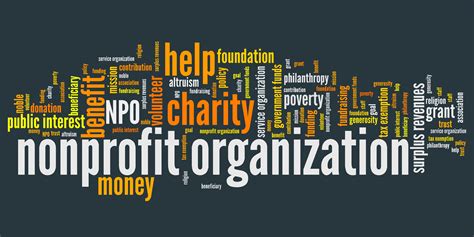New Report Explains How Governments Can Leverage Federal Funds to Partner with Local Nonprofits

By Brian Skinner, Esq.
The National Council of Nonprofits has issued a report on how state and local governments can partner with nonprofit organizations in their communities to use relief funds distributed through the American Rescue Plan Act (“ARPA”) by expanding existing programs or creating new ones.
Congress expressly declared in the ARPA that state, local, Tribal, and territorial governments may use their allocations of the $350 billion in Coronavirus State and Local Fiscal Recovery Funds to provide “assistance to households, small businesses, and nonprofits, or to aid impacted industries.”
This new report explains that Coronavirus State and Local Fiscal Recovery Funds “are substantial, but not limitless; governments need to adopt reasonable selection criteria to ensure they apply fair guiding principles for spending the money to secure the greatest impact for the public good.”
The report lays out four guiding principles that government should follow when spending recovery funds:
- Governments should apply lessons learned throughout the crisis and prioritize equity from the outset to end the many inequities in access to and delivery of health and human services in our country that were more fully exposed by the pandemic.
- To promote healthy local economies, governments should invest in economic multipliers, like nonprofits, that can rehire people, promote other employment by providing services like childcare and job training, all while also stimulating economic activities, such as by people spending money at restaurants and retail stores near the arts and cultural institutions they visit.
- It is in everyone’s interest for governments to push the funding out quickly to meet urgent needs yet doing so fairly by spreading opportunities beyond the usual recipients.
- Governments should promote accountability in the use of the funds through reasonable documentation and transparency.
In its report the National Council of Non-Profits recommends that governments can benefit from their experiences with programs created and funded under the 2020 CARES Act, and rather than reinventing the wheel, recognize universal factors related to all grant programs – eligibility criteria, allowable uses, program administration, application requirements, prioritization, grant amounts, budget surpluses, and communication of opportunities – and consider recommendations informed by recent experiences on how to proceed.
In 2020, the federal government recognized that nonprofits were essential to relief and recovery efforts and consequently, were eligible for the CARES Act monies. The same is true with the ARPA’s State and Local Fiscal Recovery Funds. The ARPA allows for greater flexibility than the CARES Act, so governments can be even more creative with ARPA funding.
The report presents several ways that governments can leverage opportunities for partnerships with nonprofits when using the State and Local Fiscal Recovery Funds, including –
- Lifting unemployment insurance burdens off employers;
- Creating relief and recovery funds and grants for nonprofits to use in their communities
- Improving the process and other aspects of government grants and contracts with nonprofits; and
- Expanding and replicating innovative nonprofit programs to help communities respond, adapt, and recover.
The report is broken into sections, highlighting principles that government leaders can use to guide their funding decisions, recommendations for designing programs, and existing nonprofit relief models that have worked well in places across the country.
At H2C we recognize that nonprofits have the relationships with the people on the ground to implement programs that will have the greatest impact in their communities. We also know that government officials at both the state and local level want to make this unique funding opportunity go as far as it possibly can.
As government officials increasingly recognize the importance of government and non-profit partnerships, let H2C help make your non-profit an important part of future solutions to aid state and local recovery efforts.
Brian is the former counsel to the West Virginia House of Delegates Judiciary Committee and counsel to the West Virginia Senate Minority Caucus. He was also general counsel to the West Virginia State Health Officer and Commissioner for the Bureau for Public Health. He has almost two-decades of experience as a strategic advisor and chief legal counsel to both executive and legislative branch public officials.

